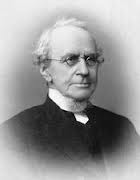summarized Karl Dahlfred’s Theology
Drives Methodology: Conversion in the Theology of Charles Finney
and John Nevin, highlighting a number of its key
insights and questions. The book contrasted the theology and
methods of two men, Charles Finney and John Nevin, who represent
two ends of a spectrum. Finney characterizes the Arminian,
revivalistic tradition. Nevin represents a Calvinistic,
church-based approach to evangelism. In this post, I consider the
potential ways that each view may get synthesized into contemporary
perspectives of salvation and mission method. The book helped me
formulate more succinctly the tendencies of each position. The
theology-oriented, Calvinistic leaving camp emphasizes God’s
sovereignty and perseverance (or at least “eternal security”). The
real test of genuine faith and salvation is good works, which are
the effect of regeneration. A problematic response to this thinking
would be for someone to have a false sense of security because they
presume that works are not necessary (i.e. inevitable) fruits of
saving faith. Assurance of salvation is ultimately grounded in what
is objective (God’s sovereignty via Christ’s death) rather than
what is subjective (obedient works). Some might charge that this
leads to antinomianism. On the other hand, the pragmatic,
Arminian-leaning camp emphasizes human responsibility and decision
to the point that the test of genuine faith is external responses
like praying a “sinners prayer” or participation in certain
meetings. The problem then may lie in overemphasizing the
importance of people either in conversion or in developing methods
and strategies that result in apparent conversions. Inevitably,
works can subtly move from being an evidence of salvation to a
basis of salvation. Assurance of salvation comes from what is
subjective (obedient works) rather than objective (God’s
sovereignty via Christ’s death). Objectors may complain that this
thinking opens the door for legalism. 
Nevin
result? Here is my suggestion. Christians preach and believe a
message where God is sovereign (somehow) but ultimately individuals
determine whether they are saved. Faith is a decision that is
expressed in praying a prayer, perhaps baptism, or something
similar. As a decision, it is not a work and should be sharply
distinguished from “works.” Obedience is very important but not
necessarily inevitable for the believer. Converts believe
themselves to have eternal security. They have a kind of
“assurance” that is not based on evident change of character, nor
is it based on God’s sovereign changing of the human will (since
that would contradict “free will”). Finally, the “main thing” to be
emphasized in ministry is individual salvation; church identity is
merely urged. This sounds much like contemporary evangelicalism.
There is little reflection in churches today as to the relationship
between methods and theology. How often might they be in tension
and we never notice? In that case, might our methods undermine our
stated theology? Would not our methods ultimately trump our
statements of faith? What dangers belie an uncritical assessment of
either our theology or methods? Both the fixation and fear of
novelty can become hindrances to gospel ministry. This book is a
helpful contribution to this discussion. What other books would you
suggest that relate to this issue of theology and ministry
methods?
















